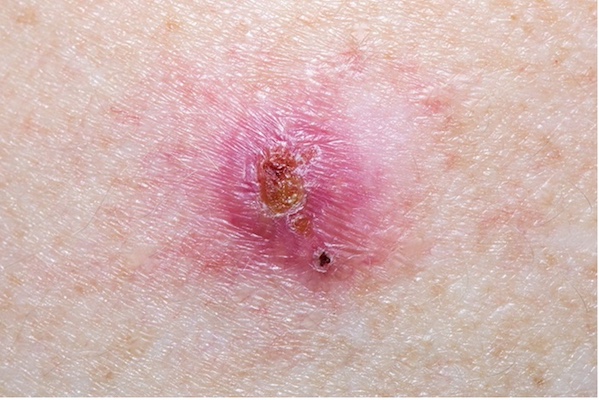Deep Learning Powered AI Algorithms Improve Skin Cancer Diagnostic Accuracy
April 18, 2024
Source: drugdu
 416
416
 Artificial intelligence (AI) algorithms are increasingly being utilized in various clinical settings, such as dermatology. These algorithms are developed by training a computer with hundreds of thousands or millions of images of various skin conditions, each labeled with details like the diagnosis and patient outcomes. Through a process known as deep learning, the computer learns to identify patterns in the images that are indicative of specific skin diseases, including cancers. Once sufficiently trained, the algorithm can suggest potential diagnoses based on new images of a patient’s skin. However, these algorithms do not operate in isolation; they are used under the supervision of clinicians who evaluate the patient, make their own diagnostic assessments, and decide whether to follow the algorithm's recommendations.
Artificial intelligence (AI) algorithms are increasingly being utilized in various clinical settings, such as dermatology. These algorithms are developed by training a computer with hundreds of thousands or millions of images of various skin conditions, each labeled with details like the diagnosis and patient outcomes. Through a process known as deep learning, the computer learns to identify patterns in the images that are indicative of specific skin diseases, including cancers. Once sufficiently trained, the algorithm can suggest potential diagnoses based on new images of a patient’s skin. However, these algorithms do not operate in isolation; they are used under the supervision of clinicians who evaluate the patient, make their own diagnostic assessments, and decide whether to follow the algorithm's recommendations.
Now, a new study led by researchers at Stanford Medicine (Stanford, CA, USA) has found that AI algorithms, which utilize deep learning, can enhance the accuracy of diagnosing skin cancers. This benefit extends to dermatologists, though the improvement is more pronounced for non-dermatologists. The study analyzed 12 research papers that documented over 67,000 evaluations of possible skin cancers by various medical practitioners, both with and without AI assistance. Findings indicated that healthcare practitioners without AI support accurately diagnosed approximately 75% of actual skin cancer cases and correctly identified about 81.5% of non-cancerous conditions that resembled cancer. The performance of healthcare practitioners improved when they used AI to assist with diagnoses. Their sensitivity increased to about 81.1% and their specificity to 86.1%.
Although these improvements might appear modest, they are crucial for correctly diagnosing patients who are either mistakenly told they do not have cancer when they do, or incorrectly informed they have cancer when they do not. The analysis further revealed that medical students, nurse practitioners, and primary care physicians gained the most from AI assistance, with average improvements of approximately 13 points in sensitivity and 11 points in specificity. While dermatologists and dermatology residents already showed higher overall accuracy, their diagnostic performance also saw gains in sensitivity and specificity with AI assistance. The researchers are now looking to further explore the potential and challenges of integrating AI tools into healthcare, particularly focusing on how physicians' and patients' perceptions and attitudes towards AI could affect its adoption.
“Previous studies have focused on how AI performs when compared with physicians,” said postdoctoral scholar Jiyeong Kim, PhD. “Our study compared physicians working without AI assistance with physicians using AI when diagnosing skin cancers.”
Source:
https://www.labmedica.com/pathology/articles/294800884/deep-learning-powered-ai-algorithms-improve-skin-cancer-diagnostic-accuracy.html
Read more on
- Gusekirumab Injection Accepted by CDE, Multiple Pipelines Advancing Simultaneously March 4, 2026
- Yifan Pharmaceutical’s teriparatide injection has been accepted by the CDE (Center for Drug Evaluation), adding a new domestic player to the osteoporosis treatment field March 4, 2026
- //news.yaozh.com/archive/47318.html PD-1 sales surge March 4, 2026
- A major breakthrough! Roche’s oral BTK inhibitor achieves its third Phase III clinical trial victory, a game-changer in the multi-billion dollar MS (manufactured pharmaceuticals) market. March 4, 2026
- GB19 Injection Approved for Clinical Trials of Cutaneous Lupus Erythematosus March 4, 2026
your submission has already been received.
OK
Subscribe
Please enter a valid Email address!
Submit
The most relevant industry news & insight will be sent to you every two weeks.



